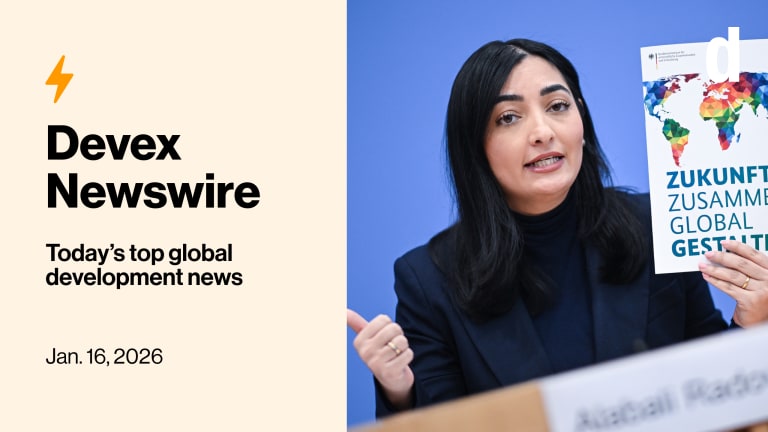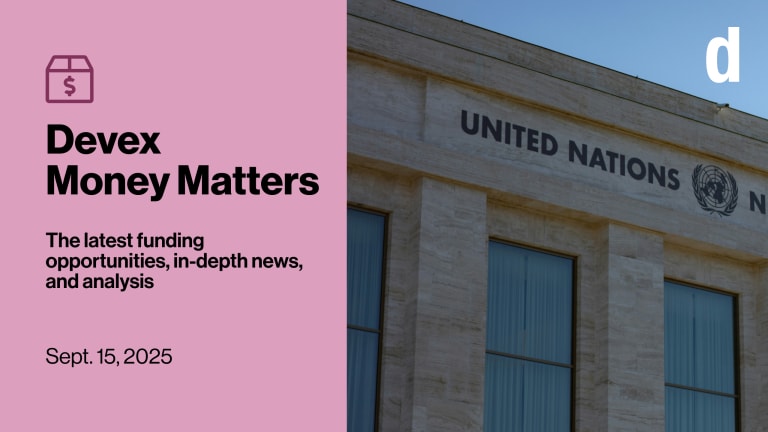Unconditional cash transfers are “the most radical form of localization,” former U.K. development minister Rory Stewart said Wednesday.
But right now, he said, little development money is given away in cash — largely because those who hold power in the sector feel threatened by it.
Stewart is currently a special adviser to GiveDirectly, an NGO that advocates for unconditional cash transfers, and previously served as its president. He said that only around 3% of development spending is currently in the form of cash assistance.
This story is forDevex Promembers
Unlock this story now with a 15-day free trial of Devex Pro.
With a Devex Pro subscription you'll get access to deeper analysis and exclusive insights from our reporters and analysts.
Start my free trialRequest a group subscriptionAlready a user? Sign in
Printing articles to share with others is a breach of our terms and conditions and copyright policy. Please use the sharing options on the left side of the article. Devex Pro members may share up to 10 articles per month using the Pro share tool ( ).








